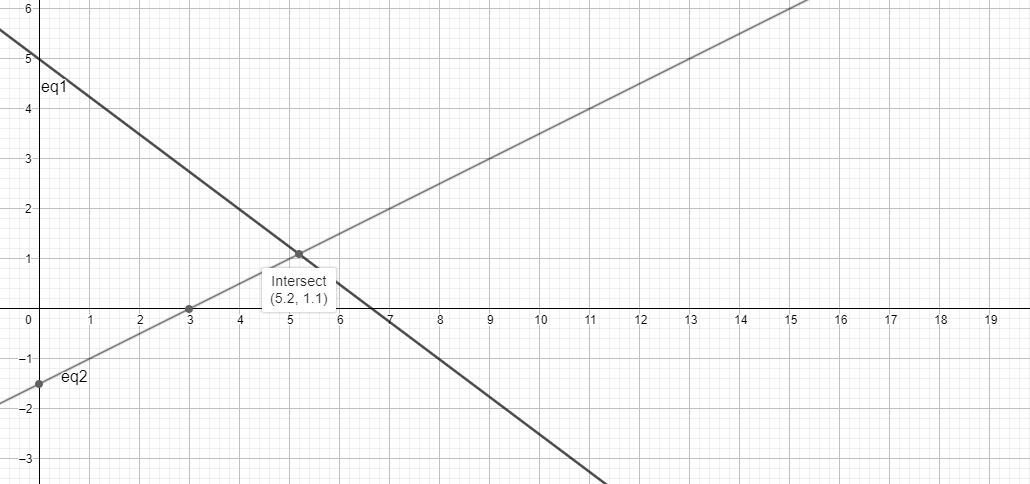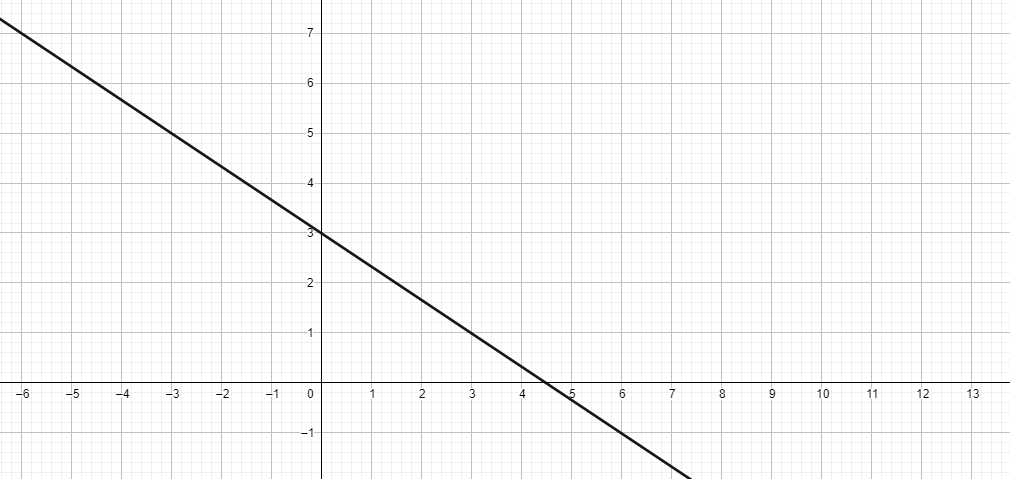Question
Question: Assertion The linear equations \(x - 2y - 3 = 0\) and \(3x + 4y - 20 = 0\) have exactly one sol...
Assertion
The linear equations x−2y−3=0 and 3x+4y−20=0 have exactly one solution.
Reason
The linear equations 2x+3y−9=0 and 4x+6y−18=0have a unique solution
A. Both assertion and reason are correct and the reason is the correct explanation for assertion
B. Both assertion and reason are correct but the reason is not the correct explanation for assertion
C. The assertion is correct but the reason is incorrect
D. The assertion is incorrect but the reason is correct
Solution
We have been given two different statements in the assertion and the reason so we’ll check for them separately, in both the cases we’ll find the number of solutions for the given linear equations. After that, we’ll check with the given options.
Complete step by step answer:
for assertion
solving for the linear equations x−2y−3=0 and 3x+4y−20=0
⇒3x+4y−20=0.............(i)
⇒x−2y−3=0...............(ii)
⇒x=2y+3
Substituting the value of ‘x’ in equation(i)
⇒3(2y+3)+4y−20=0
Simplifying the brackets
⇒6y+9+4y−20=0
Simplifying the like terms
⇒10y−11=0
⇒y=1011
Substituting the value of ‘y’ in equation(ii)
⇒x−2(1011)−3=0
Simplifying by grouping the like terms
⇒x=2(1011)+3
∴x=526
Since we got a single solution i.e. (1011,526)
Therefore the given equations have only one solution
for reason
solving for the linear equations 2x+3y−9=0 and 4x+6y−18=0
⇒2x+3y−9=0..........(iii)
⇒4x+6y−18=0...........(iv)
Dividing equation(iv) by 2
⇒2x+3y−9=0
From the above equations, we can say that both the equations of the line are the same or we can say that both the line coinciding
Since the lines are coinciding, then we’ll have an infinite number of solutions.
Now, from the above results, we can say that assertion is correct but reason id not true
Option(C) is correct.
Note: We can also verify our solution with the help of graph plotting
Assertion

Reason
Since both lines coincide,

